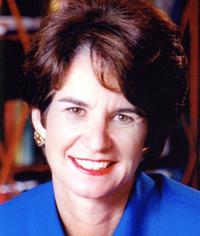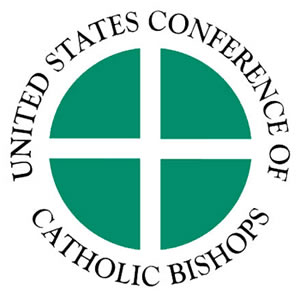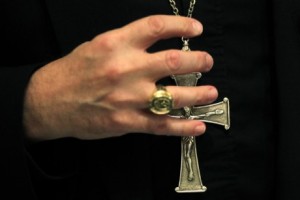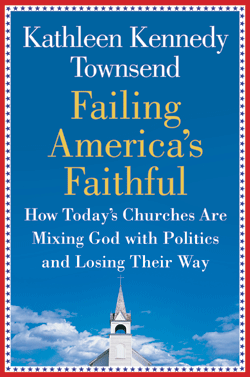 Even though 98 percent of sexually active Catholic women use birth control during their reproductive years, U.S. bishops are fighting it
Even though 98 percent of sexually active Catholic women use birth control during their reproductive years, U.S. bishops are fighting it
Last month, the Vatican issued a clarion call to all people of conscience. It wasn’t about contraception or masturbation or gay marriage or any of the other aspects of peoples’ love lives have drawn religious ire through the ages. Instead, the Pontifical Council for Justice and Peace stepped forward to question the morality of a global economic system that relentlessly enriches a privileged few while the rest of humanity struggles to keep their heads above water.
The council reaffirmed the notion highlighted in Pope Benedict XVI’s 2009 encyclical on the economy, arguing that open markets — usually the engines of prosperity — can foster poverty and inequality when unscrupulously exploited for selfish ends. As a counterbalance, the council called for international standards and safeguards to stem the world’s worsening inequities in the concentration of wealth.
With millions of Americans looking for jobs and struggling in this economy, you might expect the nation’s Catholic bishops to join the Vatican’s quest to level the economic playing field. However, the U.S. Conference of Catholic Bishops (USCCB) have other priorities. They are consumed just now with the subject of birth control. The bishops’ leadership is unhappy about a new national policy that includes birth control under preventive health care: a designation that requires new health plans to cover it in full, without the co-payments and deductibles that keep many women from using it effectively. This policy, which was adopted last summer and goes into effect next August, is both laudable and common-sense.
With yesterday, the 8th day of December, marking the Feast of the Immaculate Conception — which refers to Mary’s being conceived free of original sin, not the conception of Jesus — it would be wise of the bishops to realize that the conception of Mary by her human parents, Saint Joachim and Saint Anne, is a reminder that woman are people of conscience and can decide for themselves when it is best to conceive. In fact, birth control use is universal, even among Catholic women: 98 percent of sexually active Catholic women use birth control during their reproductive years.
Yet the more conservative bishops don’t approve. So they’re working with congressional Republicans to undermine this new benefit. If they succeed, millions of women — Catholic and non-Catholic alike — will miss out on the promise of the new health care law.
At issue is the health insurance that religiously-aligned employers sponsor for their workers. When health officials adopted the new birth control policy, they made an exception for “religious employers,” giving them an exemption from this benefit. That concession, granted over the objection of health advocates, recognizes a narrowly defined refusal provision.
But that wasn’t enough for the bishops’ conference and their congressional allies. They now want the exemption expanded to cover not only “religious employers” but also the thousands of hospitals, schools, universities, and service organizations that are affiliated with religious organizations. The USCCB’s demands are undermined by the fact that many of these Catholic entities currently offer birth control coverage through the health plans they offer employees. This larger exception would do nothing to protect religious freedom. But it would deny a benefit to a whole class of workers — including hundreds of thousands of non-Catholics — who want it, need it, and are legally entitled to it.
 The bishops’ ploy is yet another indication of how out of step they are with their flock. In the mid-1960s, Pope Paul VI authorized a commission to make recommendations about the use of birth control. The laypeople on the commission voted 60-4 for change, while the clerics voted 9 to 6. Despite the majority of both clerics and laypeople in favor of change, Karol Wojtyla, the future Pope John Paul II, argued that this change would undermine Church authority, because it would look like the Church could not discern eternal truths.
The bishops’ ploy is yet another indication of how out of step they are with their flock. In the mid-1960s, Pope Paul VI authorized a commission to make recommendations about the use of birth control. The laypeople on the commission voted 60-4 for change, while the clerics voted 9 to 6. Despite the majority of both clerics and laypeople in favor of change, Karol Wojtyla, the future Pope John Paul II, argued that this change would undermine Church authority, because it would look like the Church could not discern eternal truths.
Well, Catholic theologians, priests, and laity did discern truths, and it is the Church’s authority that was undermined. Wojtyle wrote, “To change our position would mean that we should concede frankly that the Holy Spirit had been on the side of the Protestant Churches.” Why, more than 40 years later, do bishops need to lobby Congress to get us Catholics to do what they want? Shouldn’t they be able to persuade us on their own? The fact that they can’t is a tribute to their own impotence.
As a woman and a lifelong Catholic, I sometimes marvel that faith can flourish despite the hierarchy’s not infrequent disdain for the faithful — particularly the women faithful. Over the past century, birth control has improved women’s health, enhanced children’s prospects, and helped lift millions of families out of poverty. It would be difficult to find any other single issue that most Catholic women could agree on, much less the 98 percent who have thoughtfully concluded that they must do what they can to prevent unintended pregnancies.
The head bishops not only don’t respect that judgment by members of the opposite sex, they have chosen to engage in supreme doublespeak by choosing to cite “freedom of conscience” as a justification for denying women their own freedom of conscience in resolving this intensely personal issue for themselves.
Considering how the Church has treated women throughout history, I would have hoped that today’s bishops would make a special effort to listen to our concerns. After all, St Augustine, one of the great doctors of the Church, argued that women were not made in the image of God, and another renowned theologian, Thomas Aquinas, defined women as “misbegotten males.” Pope John Paul II, in an effort to apologize for our history, wrote that women have two vocations: virgin and mother. He forgot president, prime minister, or priest.
minister, or priest.
Church-affiliated institutions employ millions of non-Catholics who signed on to earn a paycheck. Their choice of employer shouldn’t determine whether they can plan their families. The new federal policy doesn’t require anyone to use birth control, nor does it force any employer to dispense contraceptives. It’s part of a larger effort to reform health care and ensure that cost doesn’t deprive people of basic health services. Under the new national policy, the one percent of American women who never use birth control will be just as free as they are today to avoid it. The other 99 percent will gain access to a service that far too many still lack. By any reasonable definition, the policy benefits everyone.
Besides being ethically dubious, the USCCB’s demands lack any legal justification. In exempting religiously affiliated employers from the mandate to cover contraceptives, the federal government adopted the same standard that many states already use. By that standard, a “religious employer” is one with a religious mission, a religious workforce, and a religious clientele. If the bishops’ conference succeeds in rewriting that definition, millions of non-Catholic workers will lose a vital health service for themselves and their dependents.
It would also flout the will of the people. Americans want health insurance that guarantees basic care for all, and they agree overwhelmingly that birth control is part of basic care. In a Hart Research survey, 71 percent of voters agreed that health plans should cover birth control at no cost. Among Catholic women, the margin of support was 77 percent.
The most ideological of the U.S. bishops would do well to heed not only their more clear-sighted Vatican superiors but also the wisdom of so many women. That is, they could redirect the energy they waste obsessing about sex toward helping defeat the corrosive effects on tens of millions of Americans and their children of poverty, lack of health insurance, and unemployment.
Funny how the right often calls us “cafeteria Catholics,” and yet here, rather than choosing to deal with the whole body of Catholic teaching, they are themselves obsessed with what we could call “pelvic politics” — and in the process shrinking the broad teaching of the Church to a few, narrow concerns.
(Cross-posted, with permission of the author, from Atlantic.com)










Leave a Reply